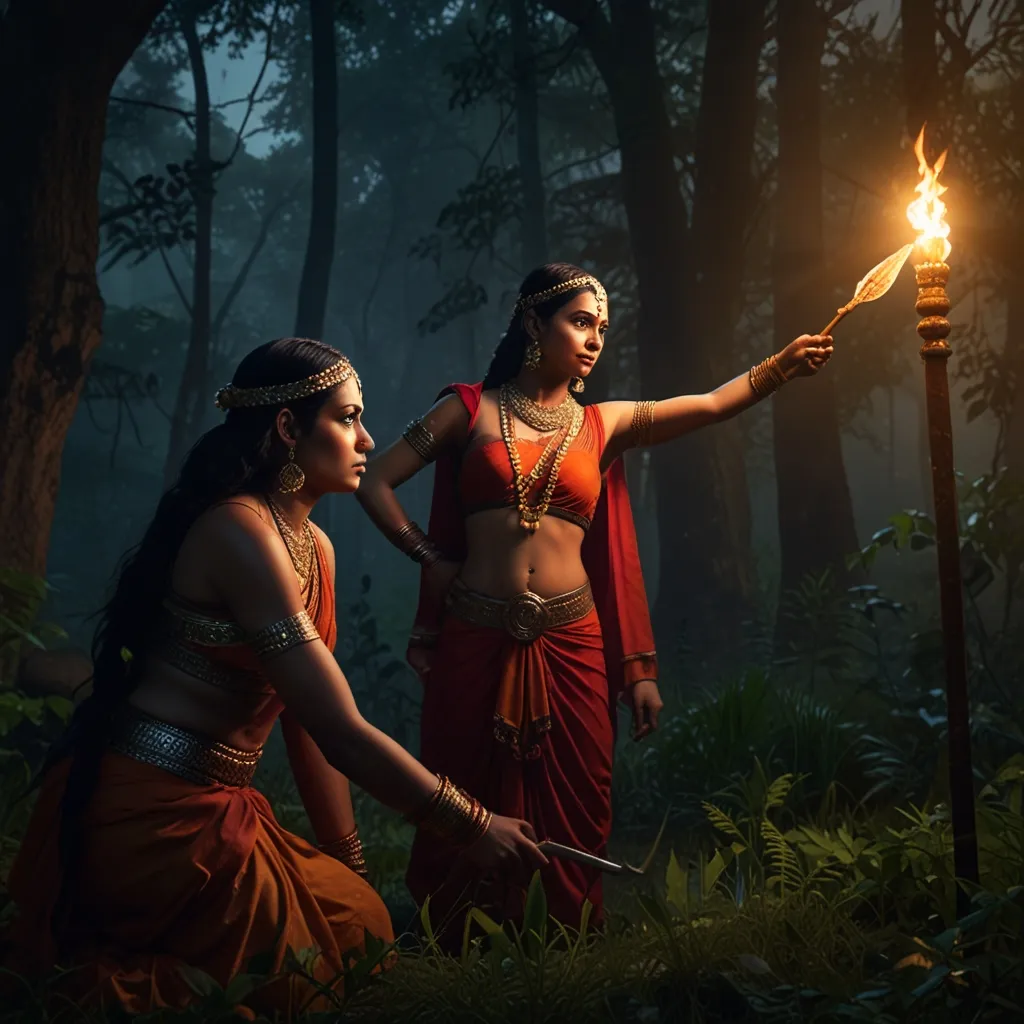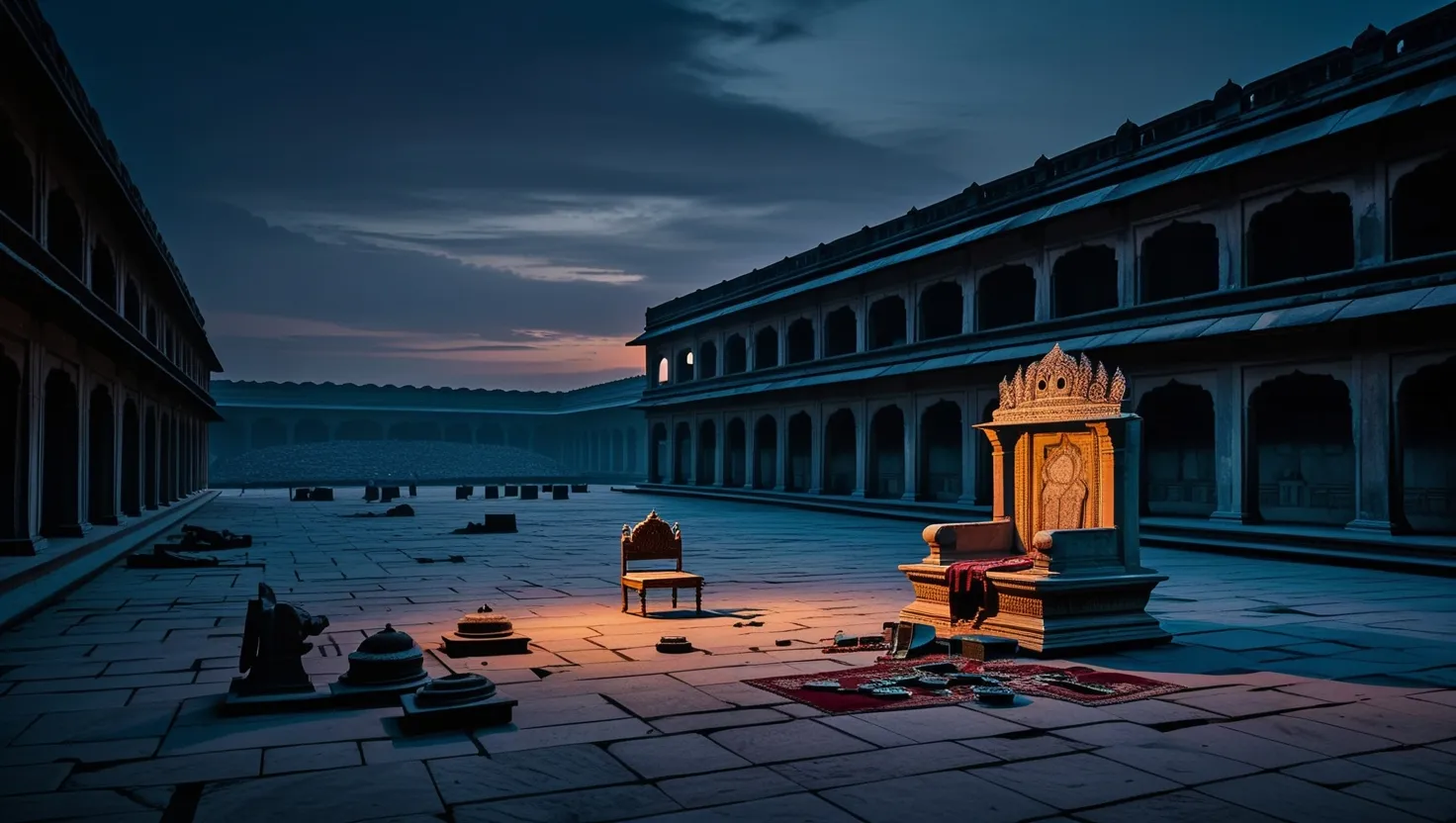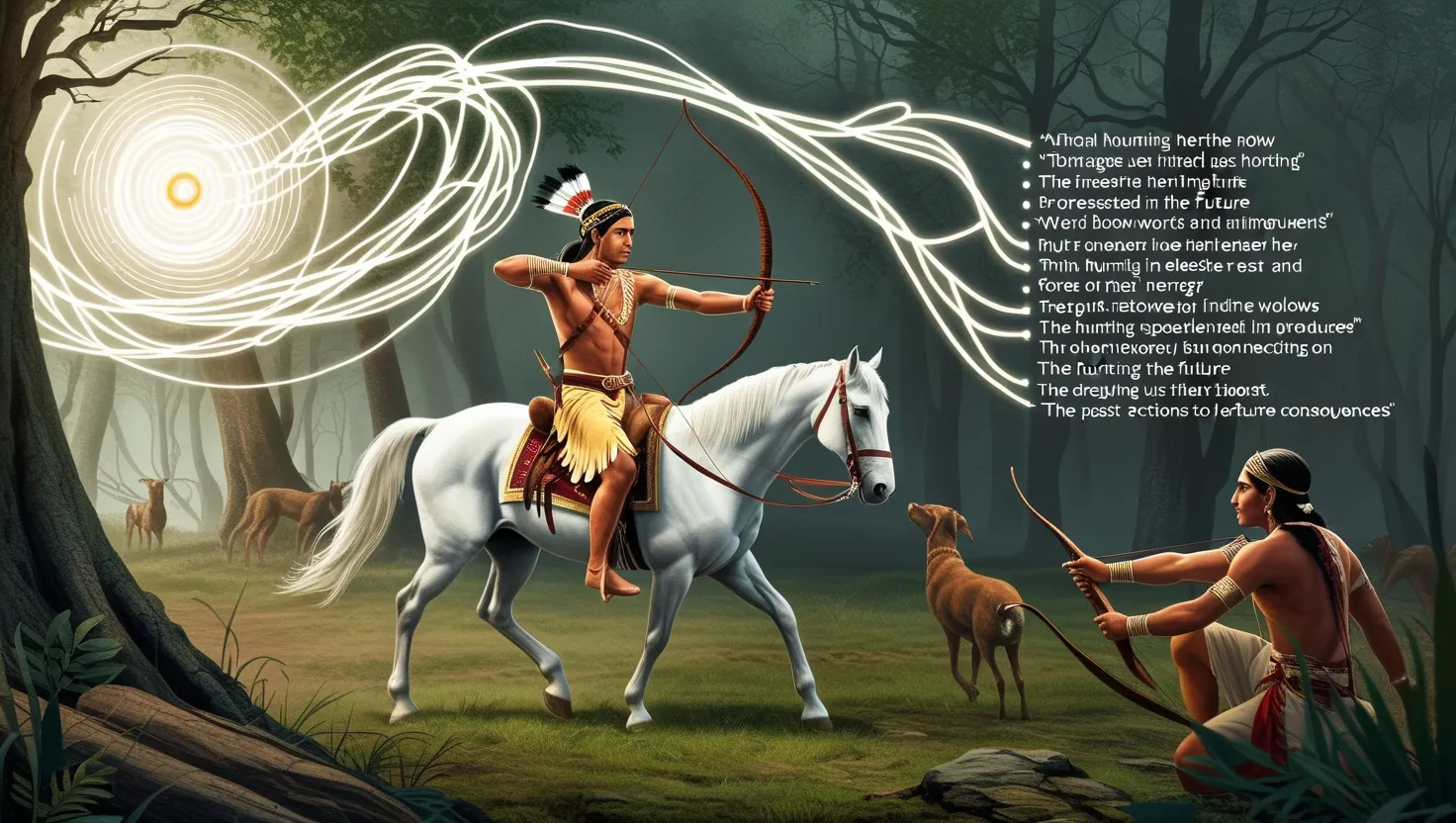In the thrilling landscape of the Mahabharata, there’s a captivating story about Bhima, the second Pandava brother, and his encounter with the Rakshasa siblings, Hidimba and Hidimbi. It’s a tale brimming with complex emotions, love, and immense character strength.
The journey starts in a dense forest. The Pandavas, along with their mother Kunti, were hiding after narrowly escaping the fiery trap of Lakshagriha. They were knackered from their escape and soon fell asleep, leaving Bhima on night watch. As fate would have it, a Rakshasa named Hidimba sensed their presence and decided to make a meal out of them. He sent his sister, Hidimbi, to lure Bhima into a trap. You’d think being a monstrous Rakshasa would make Hidimbi just as bloodthirsty, right? Wrong. On seeing Bhima, she was instantly taken by his strength and good looks. Talk about love at first sight!
Hidimbi didn’t follow through with her brother’s plan. Instead, she transformed into a stunning woman and approached Bhima, confessing not only her true identity but also her brother’s sinister intentions. Bhima, fully aware of the lurking danger, didn’t back down. He faced Hidimba head-on in a thrilling battle of raw power and skill. After an intense struggle, Bhima triumphed, slaying Hidimba.
With Hidimba out of the picture, Hidimbi was boldly upfront about her feelings. She openly expressed her desire to marry Bhima. Bhima was initially hesitant—let’s face it, marrying a Rakshasa isn’t an everyday affair. But he eventually agreed, and they tied the knot. They were soon blessed with a son named Ghatotkacha, whose head looked like a pot, hence the name.
Bhima and Hidimbi’s life was anything but straightforward. Bhima decided to live with Hidimbi until their son was born, experiencing a kind of forest honeymoon in the wild. Once Ghatotkacha was born, Bhima honored his agreement and bid farewell. Hidimbi’s love for Bhima was so profound that she accepted his departure without a fuss. Her act of letting him go shows a love that was both deep and selfless.
In the grand tapestry of the Mahabharata, Hidimbi’s character often doesn’t get the spotlight it deserves. But think about it—I mean, really think about it—her story is a powerful blend of love, sacrifice, and mutual respect. She raised Ghatotkacha alone, after all, embodying the virtues of a devoted wife and mother. Her resilience in the face of adversity is something that rings true even today.
What stands out is how Bhima and Hidimbi’s love shatters societal norms. It shows that love transcends boundaries like caste and religion. Here’s Hidimbi, boldly expressing her love and breaking patriarchal conventions. This woman’s agency in initiating a relationship was nothing short of revolutionary. Bhima leaving Hidimbi also signifies a modern theme where partners support each other’s duties and responsibilities, much like military spouses today.
Ghatotkacha, their son, turned out to be quite the warrior. Imagine having your dad’s strength and your mom’s magical abilities! He was a game-changer in the epic Kurukshetra war, fighting bravely alongside the Pandavas. He could shapeshift and alter his size, which made him a nightmare for his enemies.
Despite his formidable abilities and fearsome appearance, Ghatotkacha was a loyal and humble soul. He was the epitome of bravery and unwavering commitment to his family and allies. His death was a heroic one, sacrificing himself to save his father and the other Pandavas.
The saga of Bhima, Hidimbi, and Ghatotkacha is a rich story of love, strength, and sacrifice. It dives deep into the labyrinth of human relationships and showcases the timeless power of love and loyalty. Hidimbi’s narrative, though often overshadowed, deserves a closer look. Her story has profound significance, urging us to rethink the values the Mahabharata holds dear and how relevant its characters are even today.
To wrap it up, Bhima and Hidimbi’s tale is a classic that’s all about beating the odds. It’s a love story that steps over the lines laid down by society, showcasing strength that crushes hardships and sacrifice that redefines loyalty and devotion. This epic saga is a constant source of inspiration, reminding us of the indomitable human spirit and the everlasting power of love.






